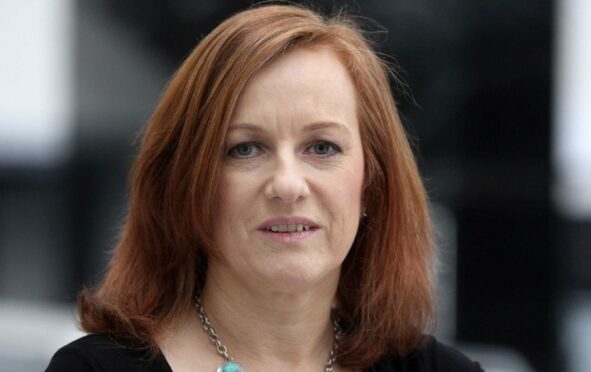
The most shocking revelations in the Johnny Depp/Amber Heard court battle last week were the ones which are not in dispute.
Depp is, of course, suing his former wife over her claims of domestic abuse but it was uncontested texts already in the public domain which dominated the headlines: messages between Depp and his actor pal Paul Bettany.
This is what the actor said about the woman who would later become his wife: “Let’s drown her before we burn her!” before sending another about defiling her corpse.
Bettany, who played the caddish Duke of Argyll in A Very British Scandal, says the exchange was taken out of context. It was apparently a running joke related in some way to a Monty Python film they both enjoyed.
But is there any context in which a joke about killing a woman then abusing her corpse is acceptable? Coincidentally, the court case in Virginia took place as the government in Scotland opened a consultation on making it an offence to invoke online threats of rape, sexual assault and disfigurement of women.
Text messages may not be covered but group chats discussing women in degrading ways, like those exposed at some universities and police stations recently, might well fall foul.
The proposal is to make misogyny an aggravator in a number of crimes, in the same way as racism. But misogyny is too academic a word here. Quite a few men simply hate women. Far too many use language featuring humiliation, mockery, abuse and violence against females. They may never act on these words but it contributes to a cultural context in which some do. Far too many.
Male hatred is unfortunately not exceptional. We are told by the authorities it’s an “isolated incident” when another “loving dad” kills his wife and kids in a revenge-driven rage or a girl is attacked by a predator walking home. These perpetrators share an identical characteristic – their maleness. They are not isolated deviants. They exist in and are shaped by a culture in which hatred of women is normalised.
The proposed new law followed recommendations from a working group led by Helena Kennedy, which gets to the dark heart of the matter. “The daily grind of sexual harassment and abuse degrades women’s lives, yet it seems to be accepted as part of what it means to be a woman,” concludes the eminent QC.
As a young woman I remember this “low-level” harassment as a daily part of life. It was everywhere and relentless. Since the 70s and 80s women have benefited from equality laws, but the kind of harassment we experienced as young women has only got worse for today’s generation. So the proposals from Baroness Kennedy are welcome.
But outlawing women hatred will not be easy. Violent pornography – which the Scottish Parliament can do little to regulate under its powers – is easily accessible. For many teenage boys this shapes their understanding of sex, intimacy and girls generally.
When The Post revealed last year how one in five Scottish schoolgirls have been sexually assaulted and one in three abused and harassed, experts highlighted the easy availability of pornography whiel the UK Government’s Equality’s Office in 2019 found “substantial evidence” of a link between the use of pornography and harmful sexual attitudes and behaviours.
It is no coincidence the rise of this kind of material has been mirrored by the rise of men using “rough sex” as a defence when they murder their partners.
As campaigners say: “We cannot consent to this” and nor should we consent to the everyday behaviour which encourages male crimes against women – whether pornography or “laddish” banter.

Enjoy the convenience of having The Sunday Post delivered as a digital ePaper straight to your smartphone, tablet or computer.
Subscribe for only £5.49 a month and enjoy all the benefits of the printed paper as a digital replica.
Subscribe